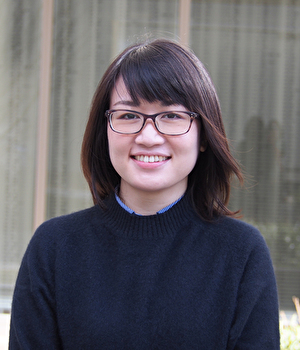
Kyoko Akatsuka
I have worked on the ethics of designer babies, which are creating children with “desirable” genetic traits by using assisted reproductive technologies. My recent research interests lie in ethical issues associated with human genome editing technologies, and I am exploring these issues from empirical (sociological) and normative perspective.
Biography
2010 BA in Asia Pacific Studies, Ritsumeikan Asia Pacific University
2012 MA in Human and Environmental Studies, Kyoto University
2014 JSPS Research Fellow (DC2) 2017 Postdoctoral Researcher,
Department of Humanities and Social Sciences,
Kyoto Prefectural University of Mediceine
2017 Ph.D in Human and Environmental Studies, Kyoto University
2018 Researcher, Uehiro Research Division for iPS Cell Ethics,
Center for iPS Cell Research and Application
Research activities
Selected publications
- Sasaki-Honda M, Akatsuka K, Sawai T. Is epigenome editing non-inheritable? Implications for ethics and the regulation of human applications. Stem Cell Reports. 2023; 18(11): 2005–2009. DOI: 10.1016/j.stemcr.2023.10.003.
- Sawai T, Hatta T, Akatsuka K, Fujita M. Human genome editing in clinical applications: Japanese lay and expert attitudes. Frontiers in Genetics. 2023; 14:1205092. DOI: 10.3389/fgene.2023.1205092.
- Akatsuka K, Hatta T, Sawai T, Fujita M. Genome editing of human embryos for research purposes: Japanese lay and expert attitudes. Frontiers in Genetics. 2023; 14:1205067. DOI: 10.3389/fgene.2023.1205067.
- Sawai T, Akatsuka K, Okui G, Minakawa T. The regulation of human blastoid research: A bioethical discussion of the limits of regulation. EMBO Reports. 2022; e56045. DOI: 10.15252/embr.202256045.
- Sawai T, Hatta T, Akatsuka K, Fujita M. Public attitudes in Japan toward the creation and use of gametes derived from human-induced pluripotent stem cells. Future Science OA. 2021; DOI: 10.2144/fsoa-2021-0066.
- Akatsuka K, Hatta T, Sawai T, Fujita M. Public attitudes in Japan toward the reproductive use of gametes derived from human-induced pluripotent stem cells. Future Science OA. 2021; DOI: 10.2144/fsoa-2021-0065.
- Sawai T, Okui G, Akatsuka K, Minakawa T. The Implications of Rethinking the 14-day Rule for Research on Human Embryos. EMBO Reports. 2021; DOI: 10.15252/embr.202153726.
- Akatsuka K, Sasaki-Honda M, Sawai T. Ethical framework for next-generation genome and epigenome editing. The American Journal of Bioethics. 2020; 20(8): 32-36. DOI: 10.1080/15265161.2020.1782524.
- Sawai T, Minakawa T, Pugh J, Akatsuka K, Yamashita J.K, Fujita M. The moral status of human embryo‐like structures: potentiality matters?. EMBO Reports. 2020; DOI: 10.15252/embr.202050984.
- Akatsuka K. 2016. Producing germ cells from induced pluripotent stem cells: The discussion in Japan. In Uehiro Carnegir Oxford Conference 2014 “Ethics For the Future of iPS/ Stem cells”. eds. J. Savulescu and M. Fujita. 29-36.
- Akatsuka K. ‘Who will be excluded from “New Eugenics” ― Issues concerning “Liberty” and “Equality” emerging from discussion about designer babies,’ The Seventh International Conference on Applied Ethics, Hokkaido University, Sapporo. 2012. 10. 26.
- Akatsuka K. ‘New Eugenics’ insidious risk: A comparative analysis of proponents’ and opponents’ arguments about designer babies,’ 2013 Uehiro Cross-Currents Philosophy Conference, University of Hawaii, Manoa. 2013. 3. 8.
- Akatsuka K. “Discussions of producing germ cells from induced pluripotent stem cells in Japan.” 2014 Uehiro-Carnegie-Oxford Ethics Conference. Kyoto, Japan. 2014. 8. 29.
- Sawai T, Akatsuka K, Specker L. “The ethics of research on stem cell derived gametes: A Japanese bioethical perspective.” The 17th Annual Meeting of the American Society for Bioethics and Humanities. Texas, USA. 2015. 10. 22.
